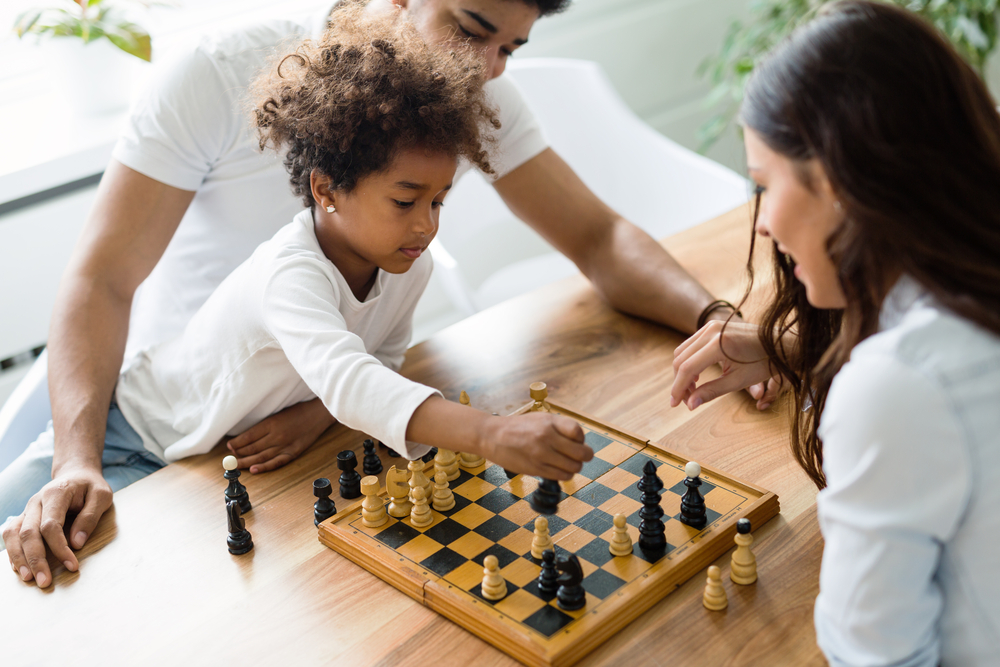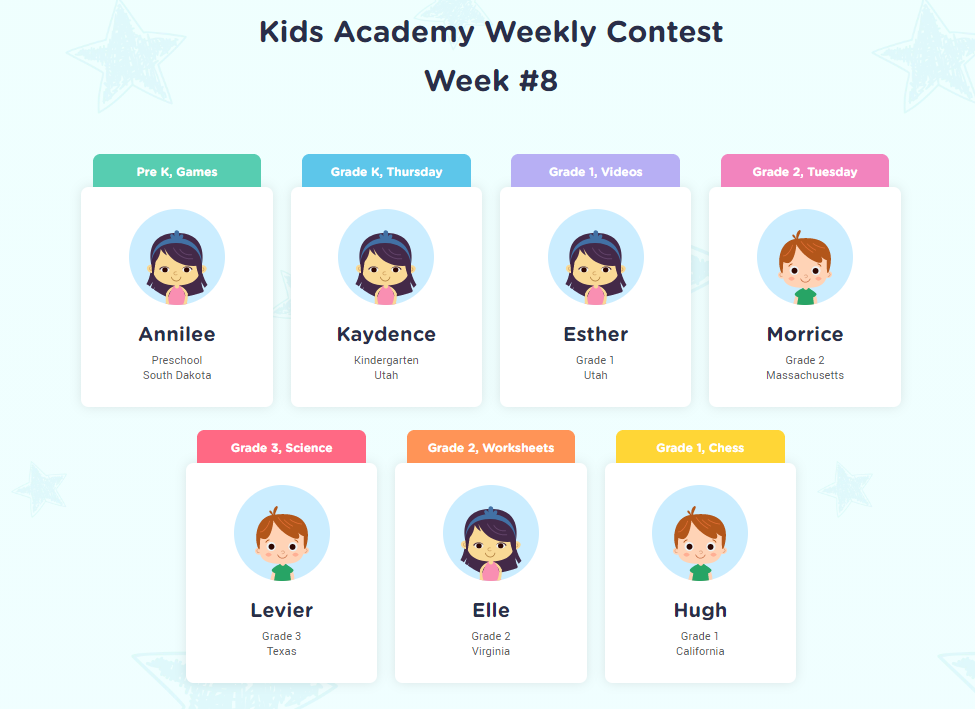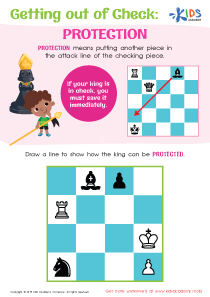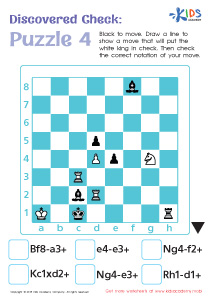Chess Worksheets for Ages 6-9 - Page 3
97 filtered results
-
From - To
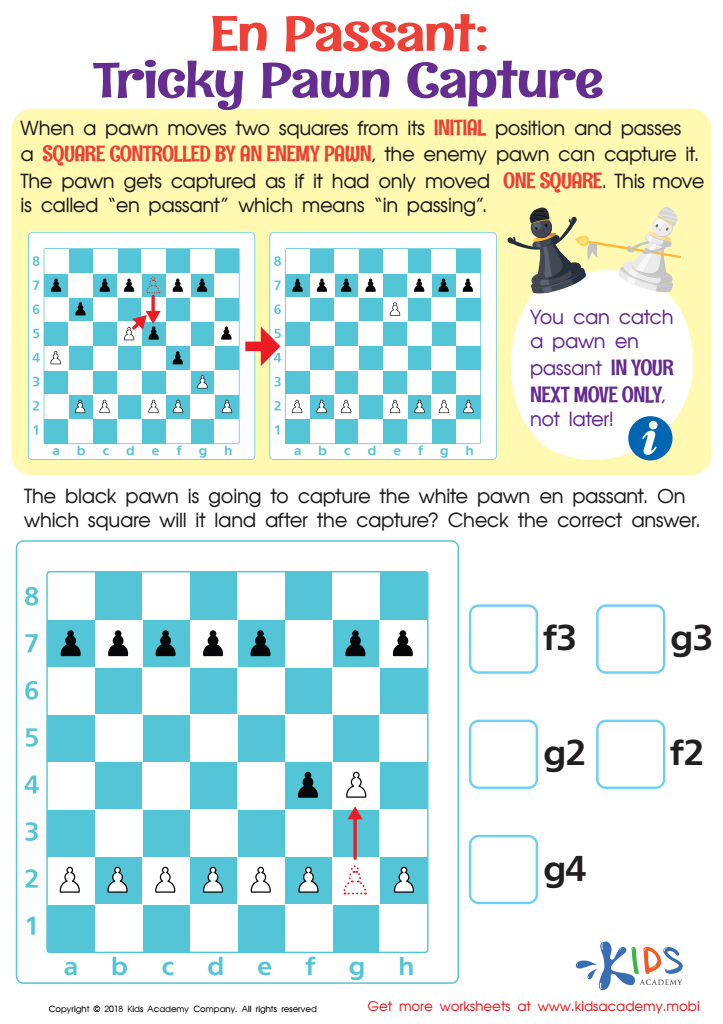

En Passant: Tricky Pawn Capture Worksheet
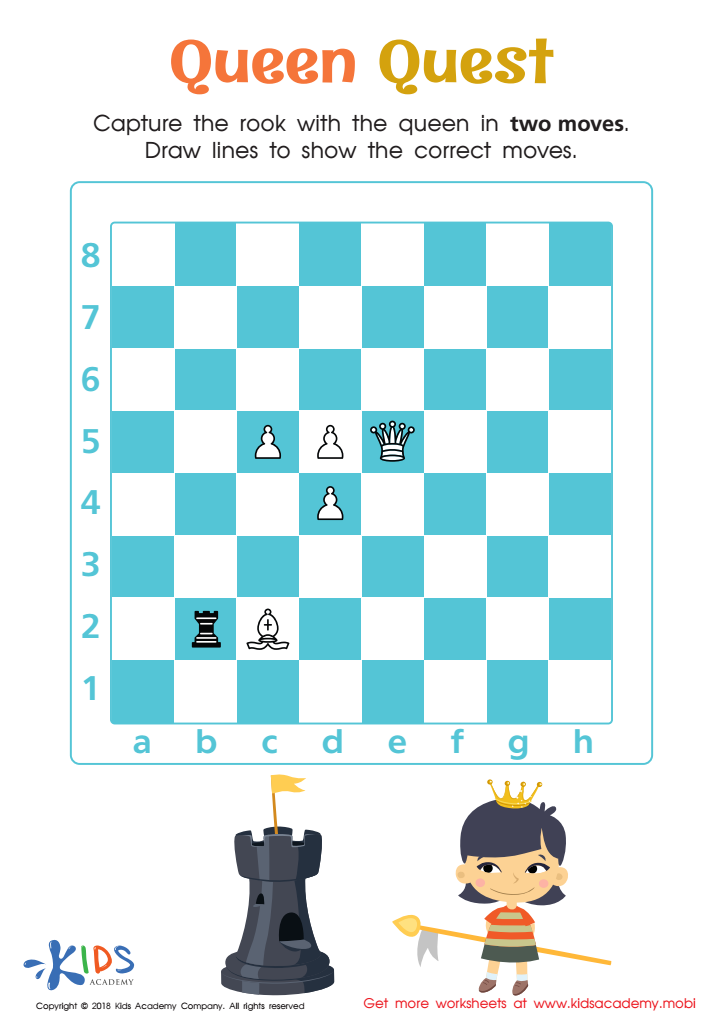

Queen Quest Worksheet
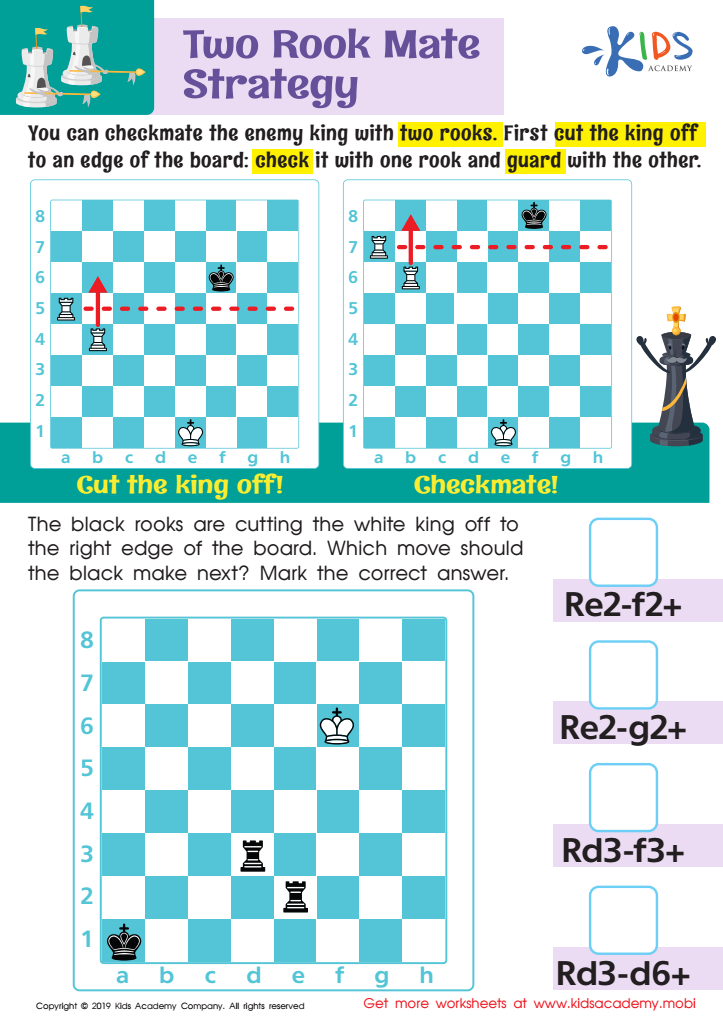

Two Rook Mate Strategy Worksheet
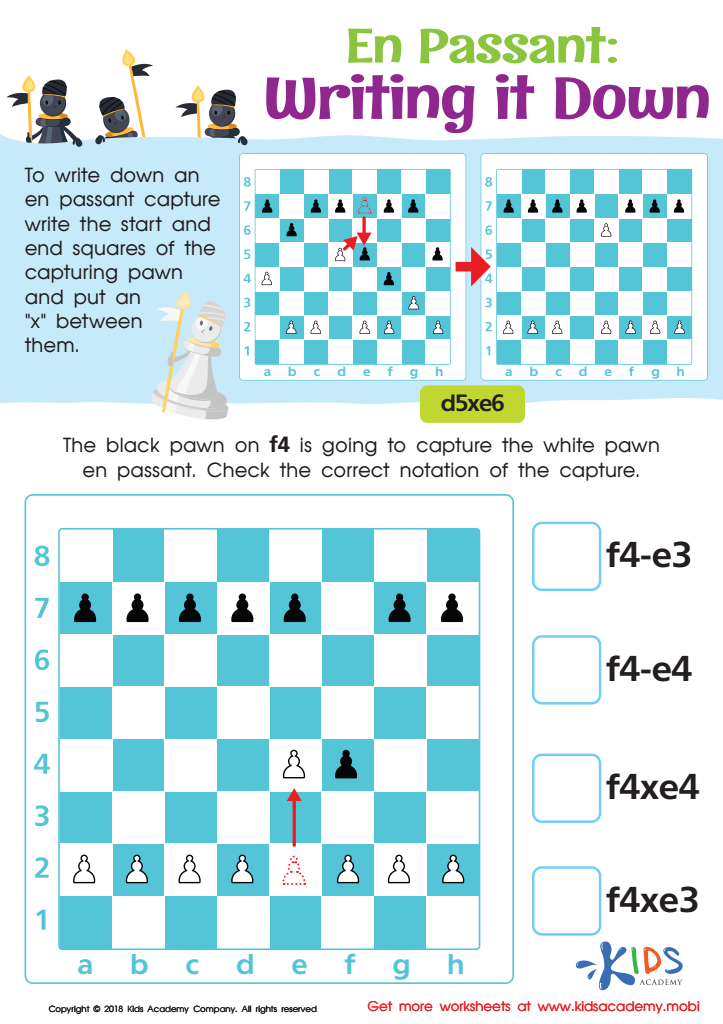

En Passant: Writing it Down Worksheet
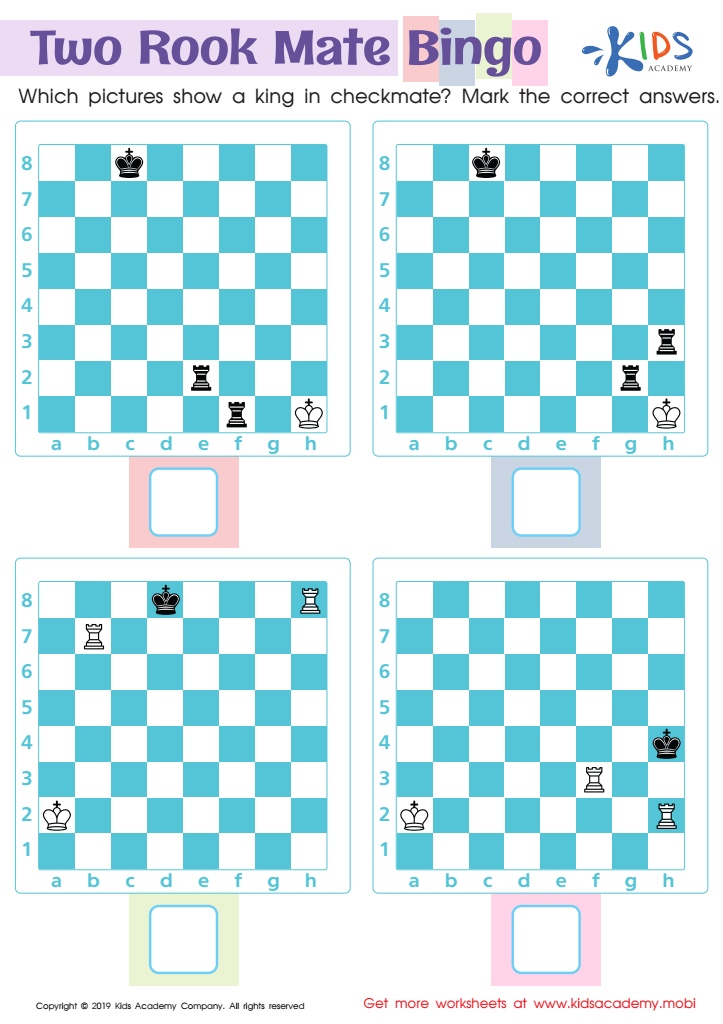

Two Rook Bingo Worksheet
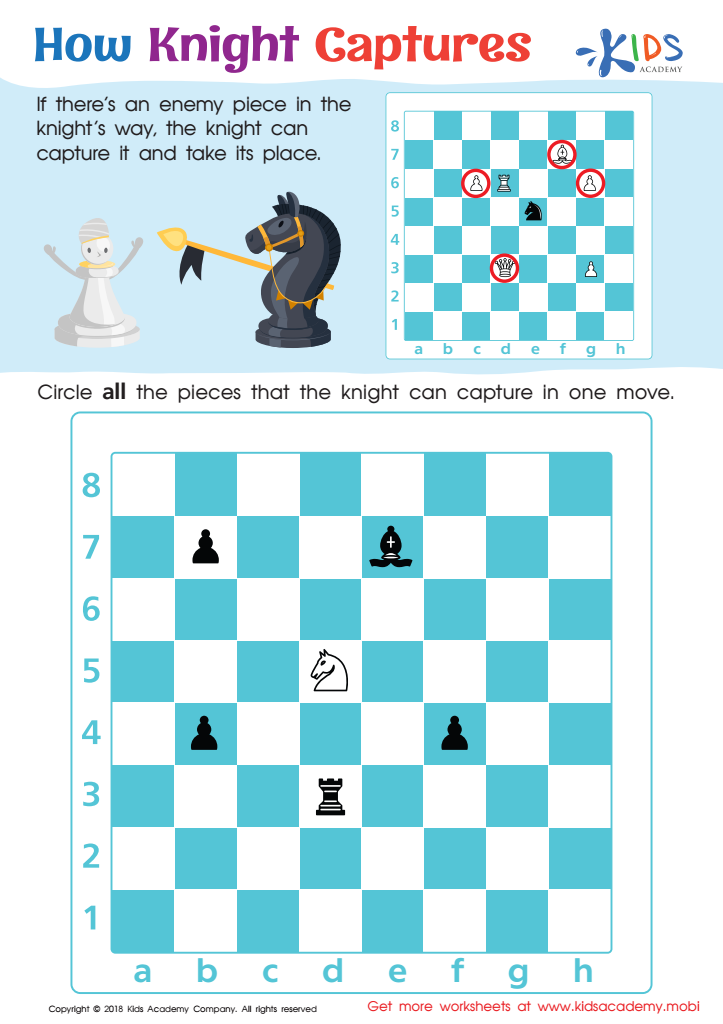

How Knight Captures Worksheet
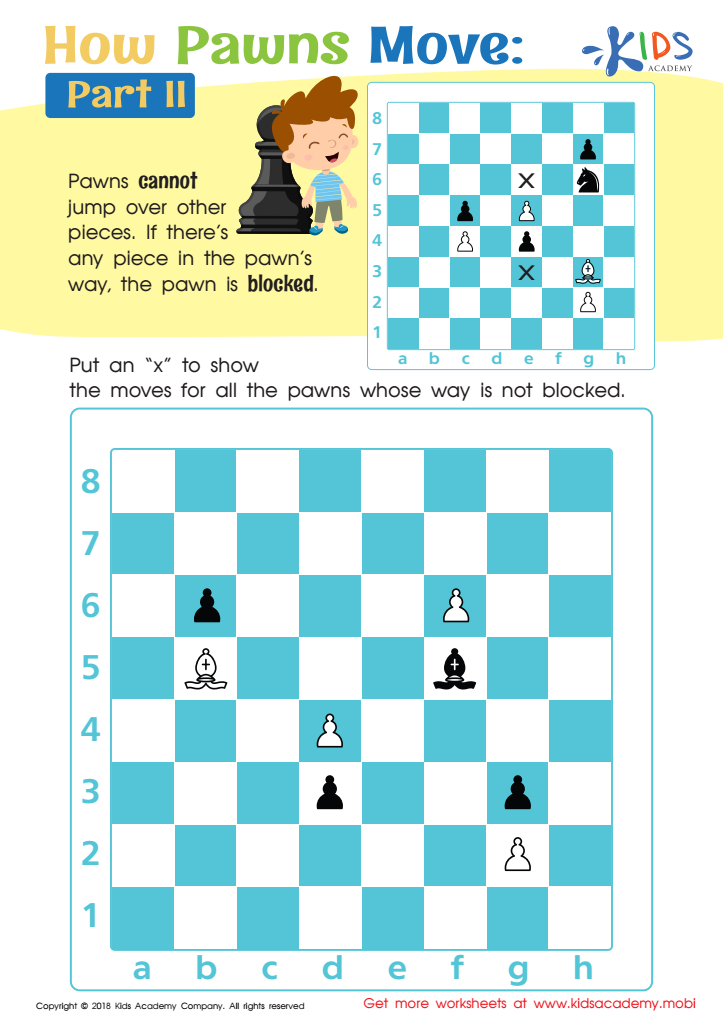

How Pawns Move: Part II Worksheet
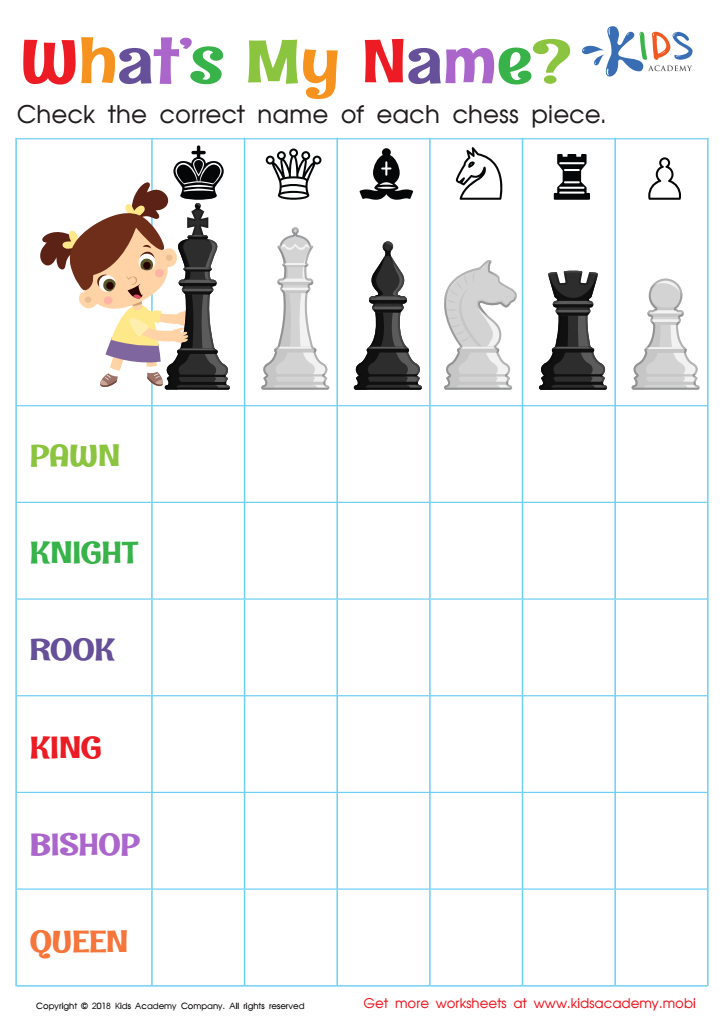

What's My Name? Worksheet
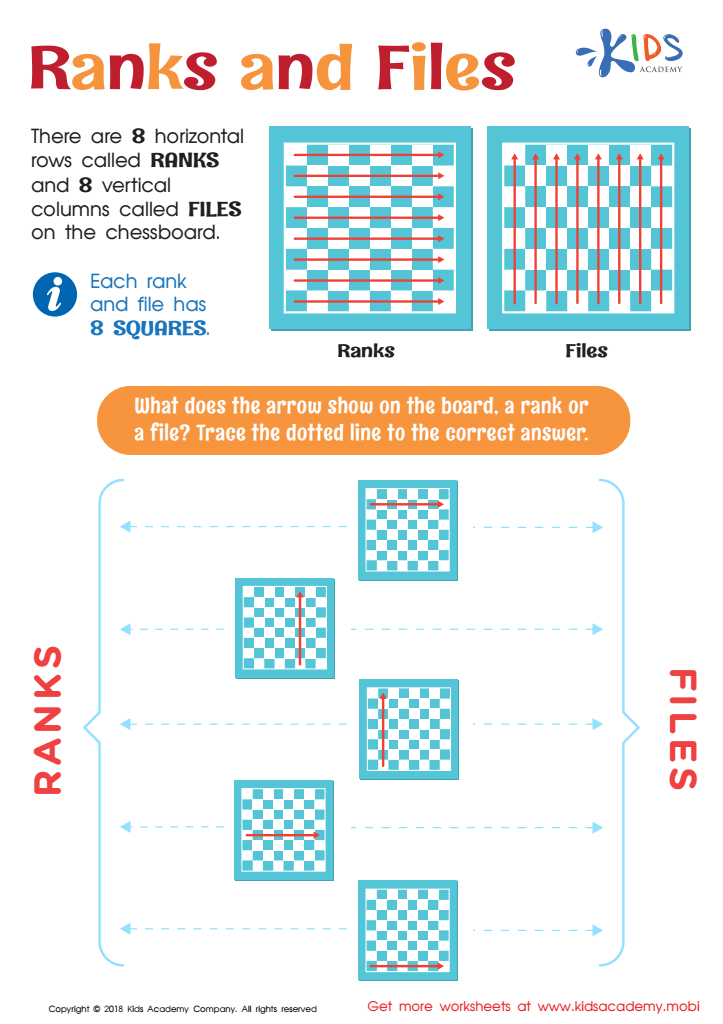

Ranks and Files Worksheet
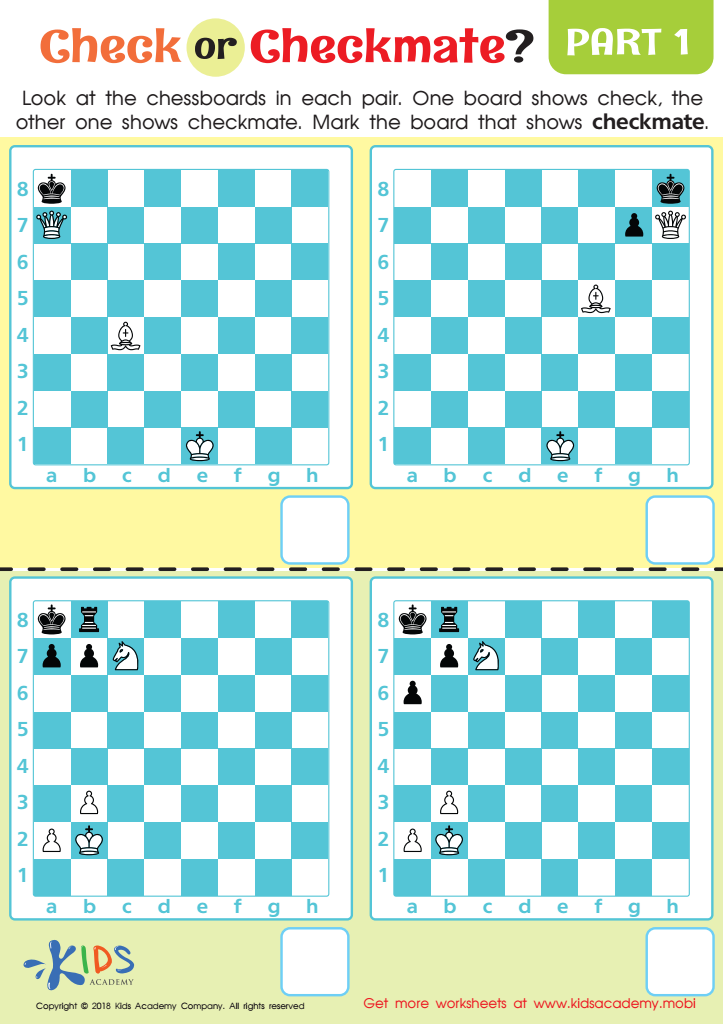

Check or Checkmate: Part 1 Worksheet
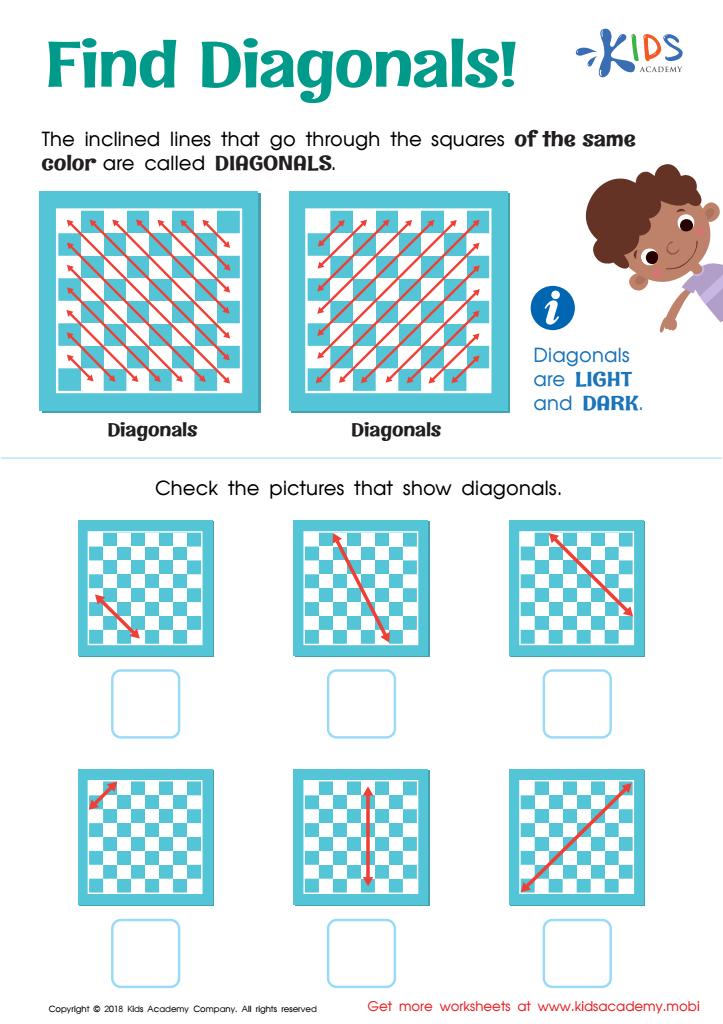

Find Diagonals Worksheet
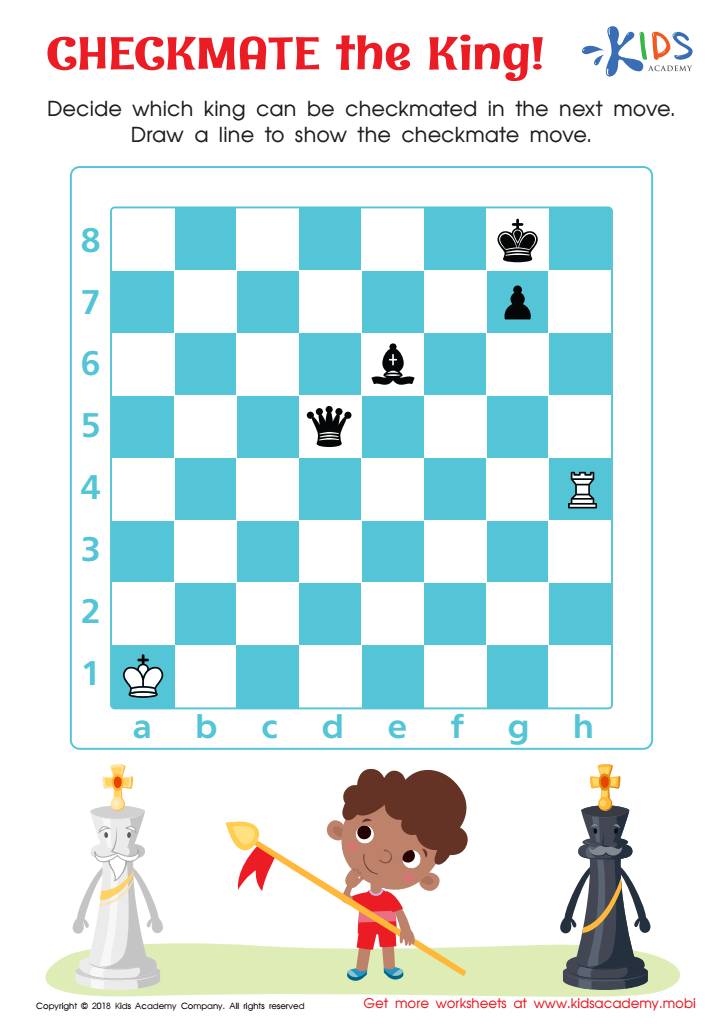

Checkmate the King Worksheet
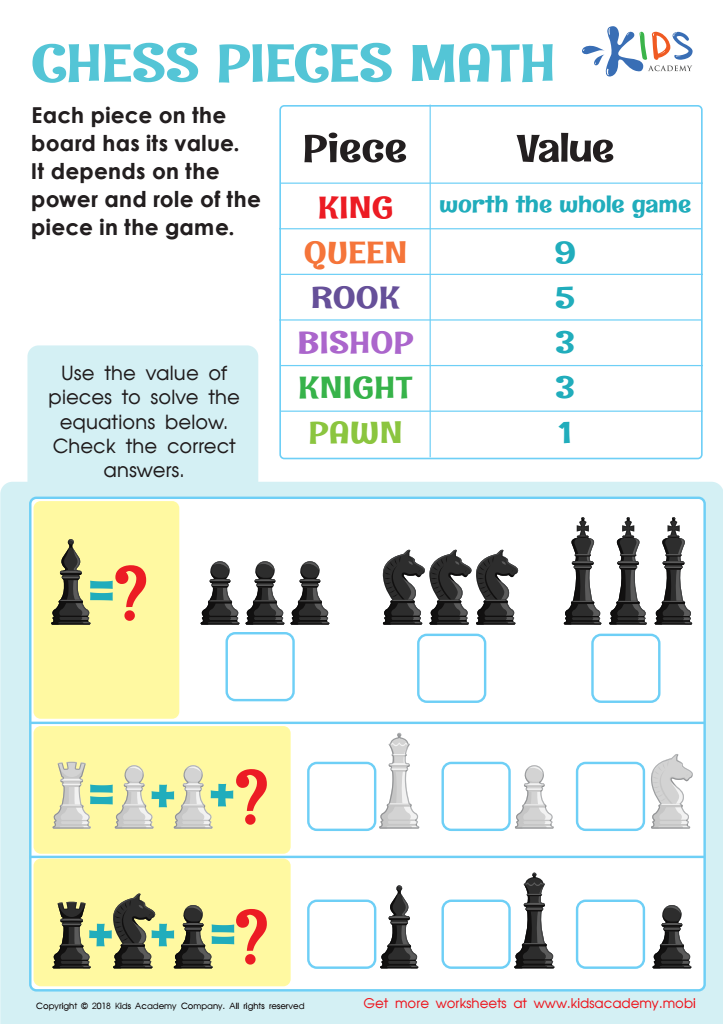

Chess Pieces Math Worksheet
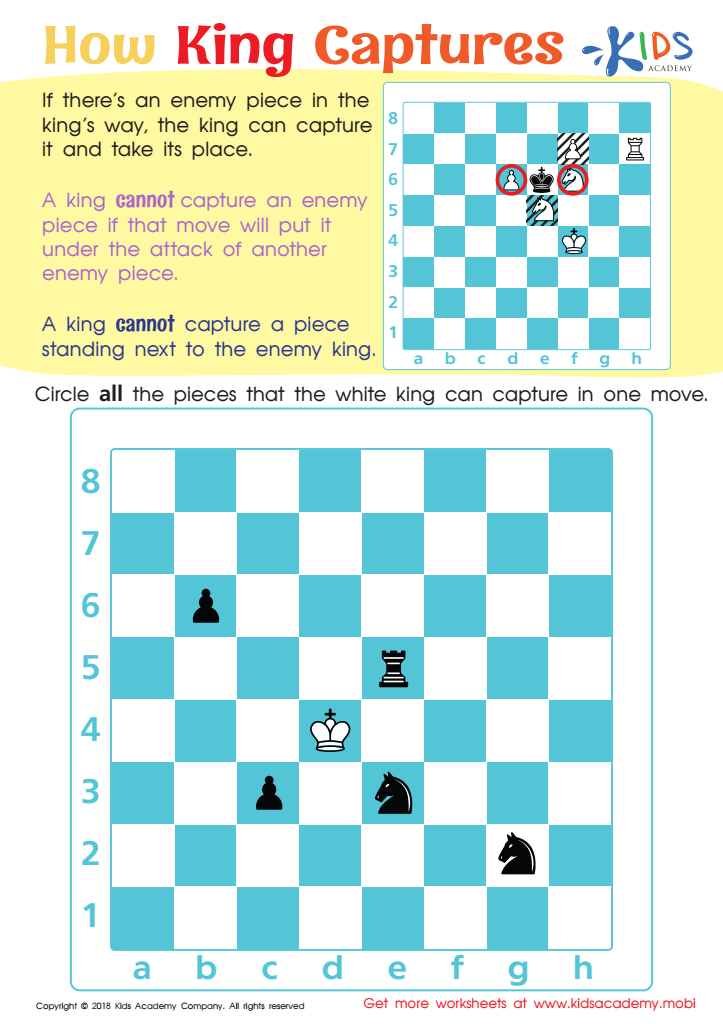

How King Captures Worksheet
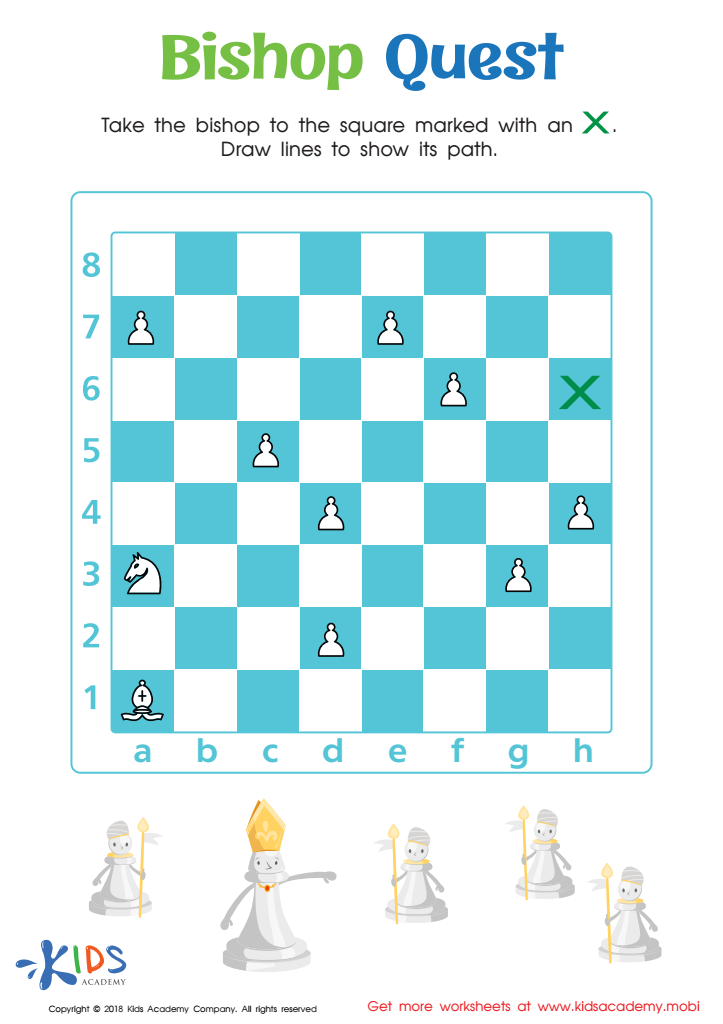

Bishop Quest Worksheet
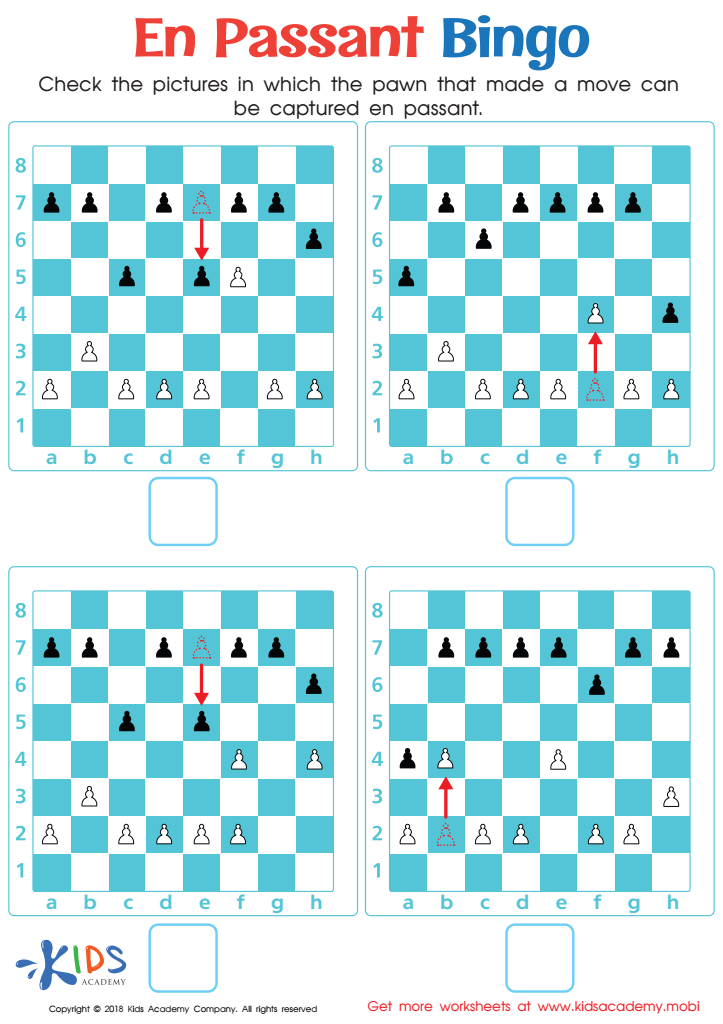

En Passant Bingo Worksheet
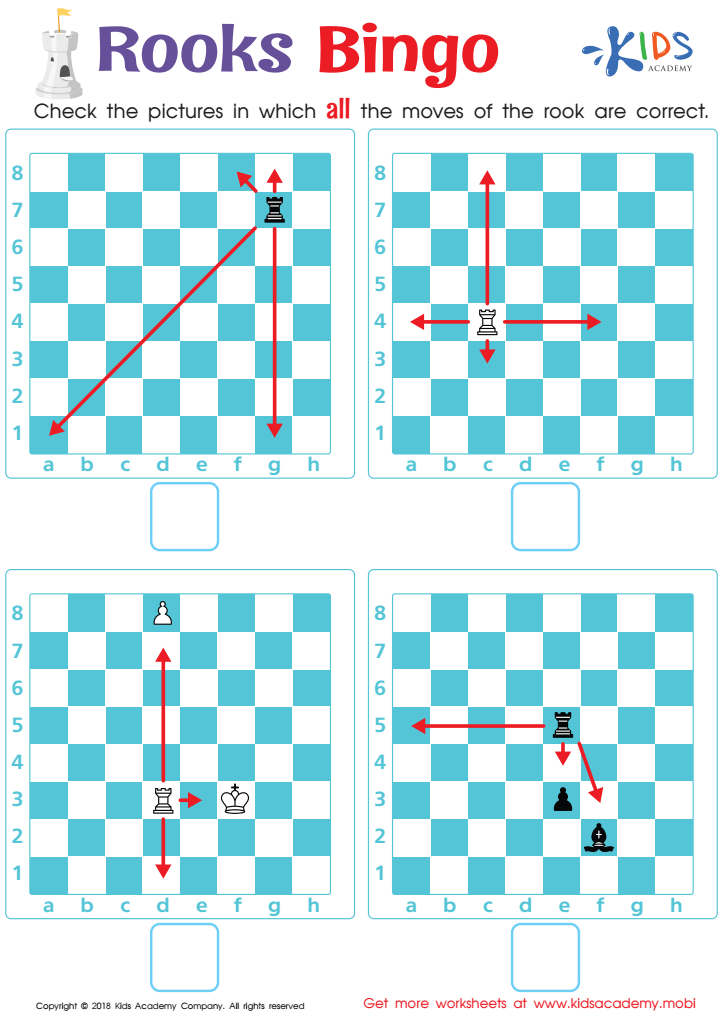

Rooks Bingo Worksheet
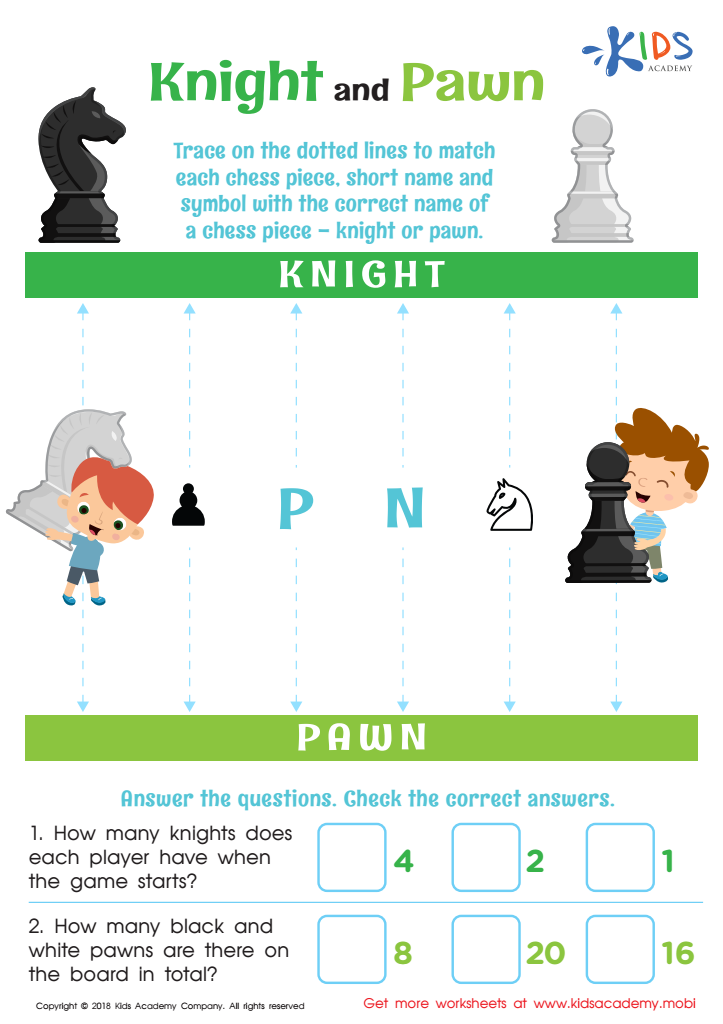

Knight and Pawn Worksheet
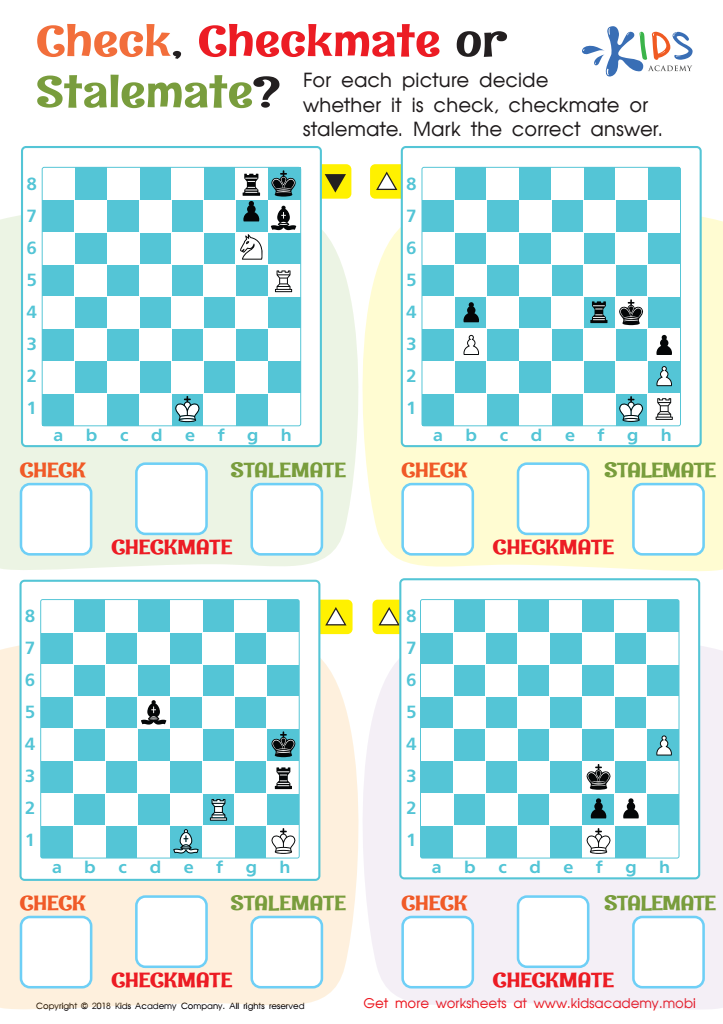

Check. Checkmate or Stalemate? Worksheet
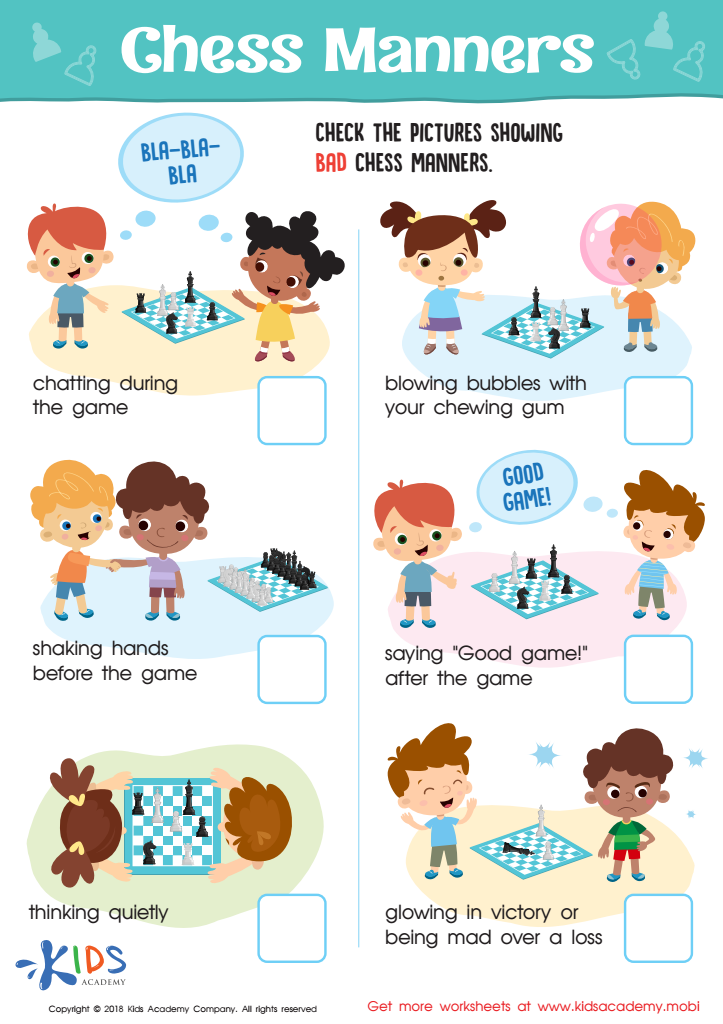

Chess Manners Worksheet
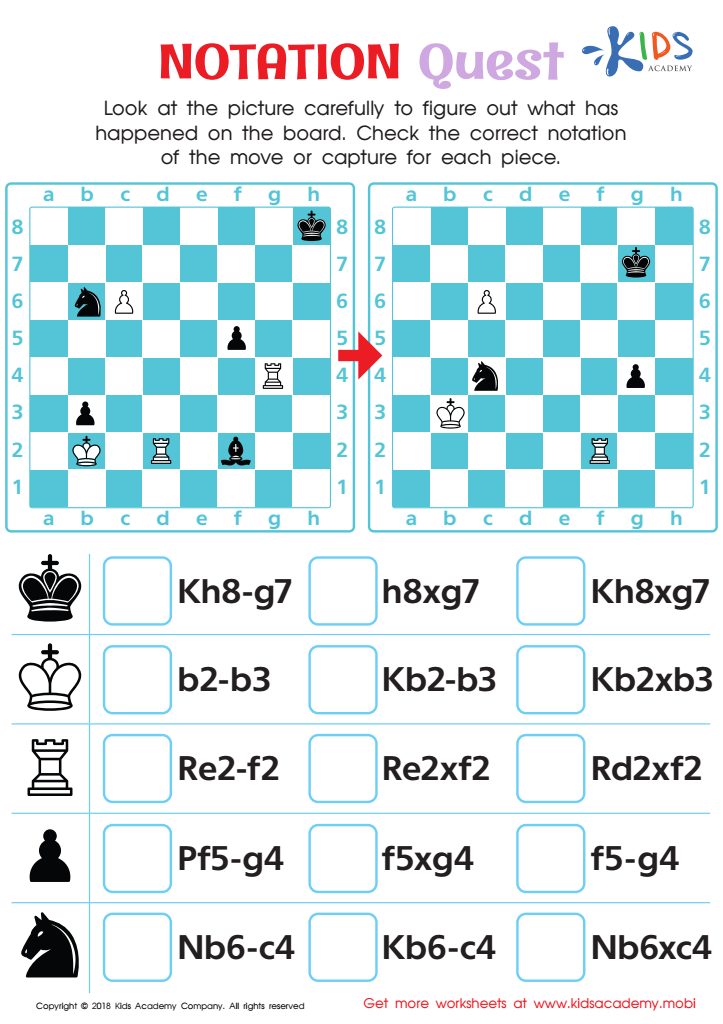

Notation Quest Worksheet
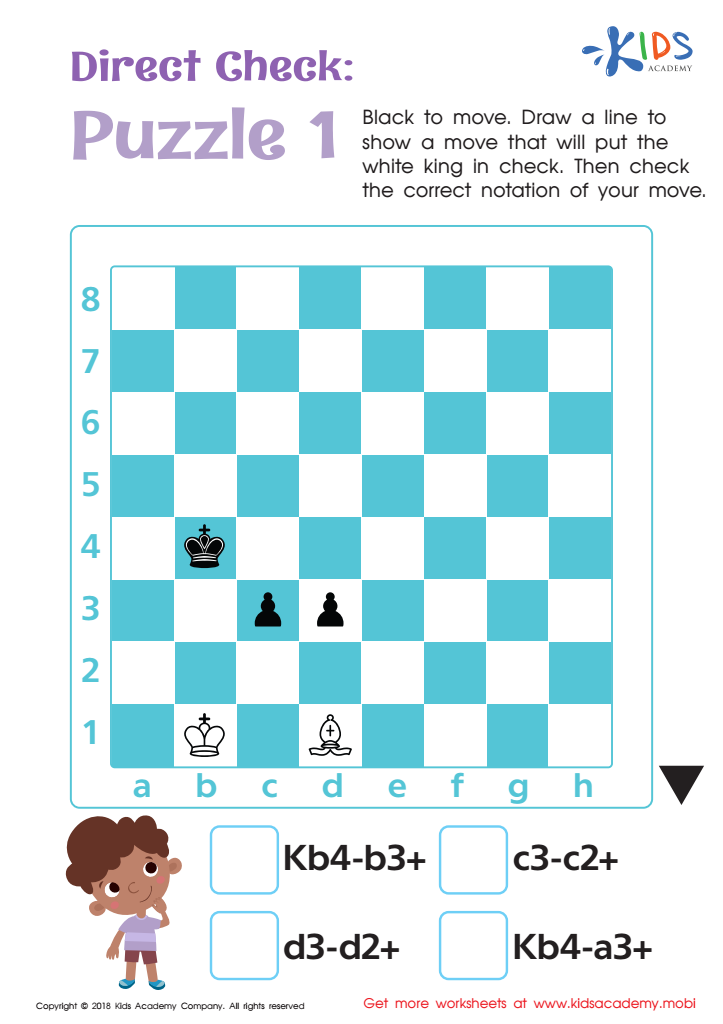

Direct Check: Puzzle 1 Worksheet
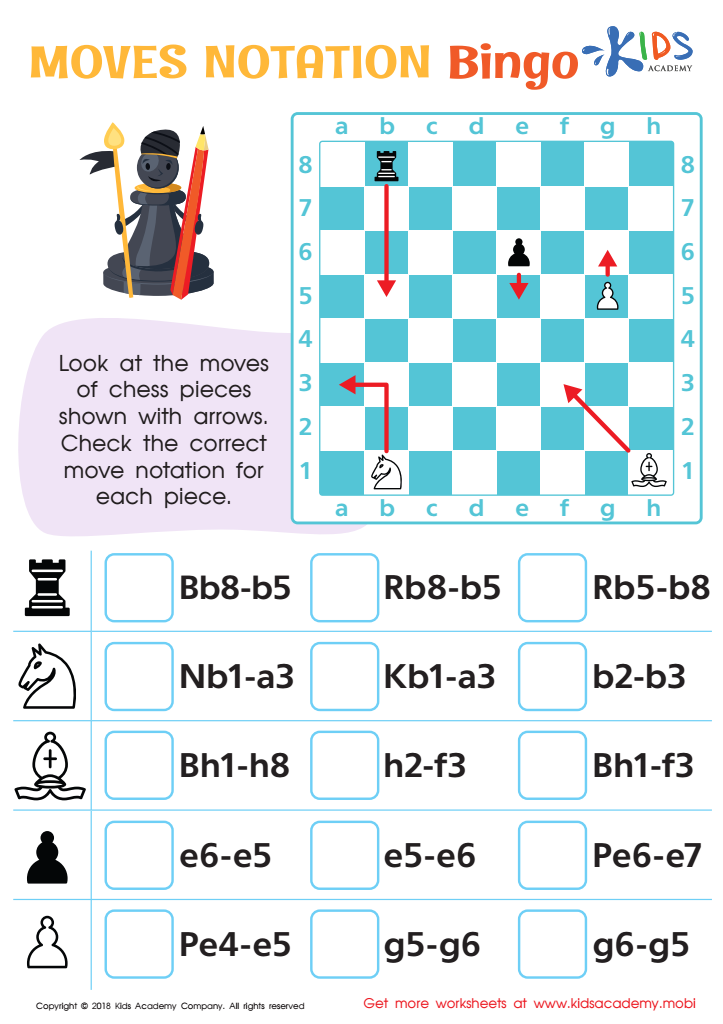

Moves Notation Bingo Worksheet
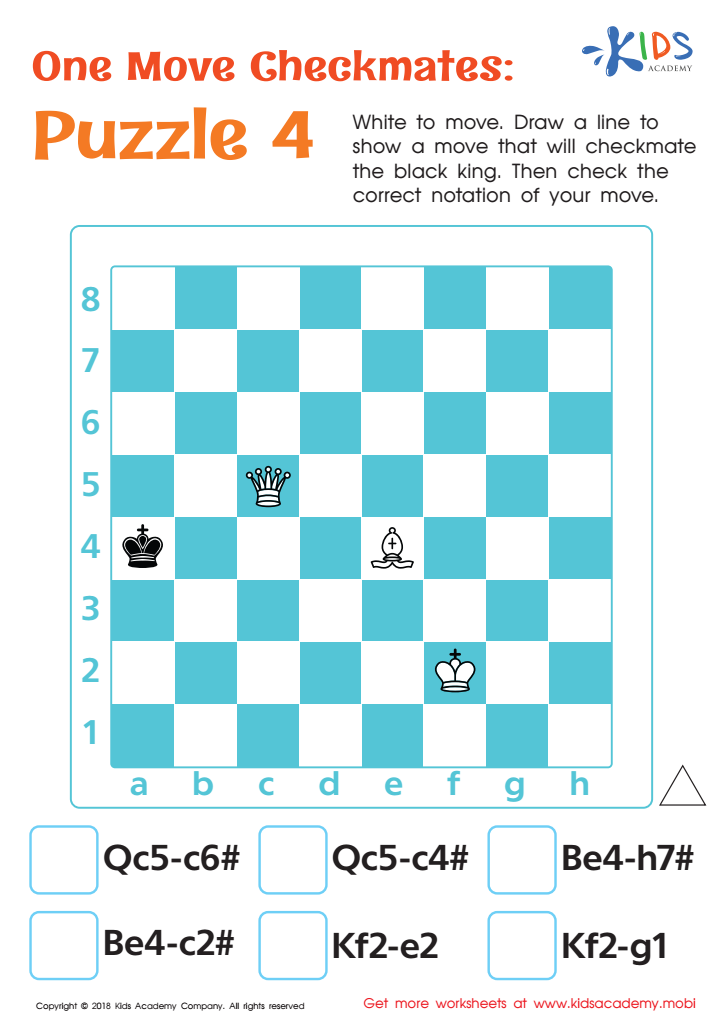

One Move Checkmates: Puzzle 4 Worksheet
Chess is a powerful tool for developing critical skills in children aged 6-9, and parents and teachers should care deeply about its integration into young learners' lives. Firstly, chess fosters critical thinking; it challenges kids to analyze positions, foresee consequences, and strategize their moves, which enhances problem-solving skills. This mental exercise promotes cognitive development, enabling children to think independently and make informed decisions.
Additionally, chess helps improve concentration and patience, as each move requires a focus on details and an understanding of long-term planning. These qualities are essential not just in chess but in all areas of life, including academics.
Socially, engaging in chess can enhance teamwork and sportsmanship among peers. Children learn to respect each other, whether they win or lose, nurturing emotional intelligence and resilience.
Furthermore, chess can significantly boost self-esteem. Mastering a game of chess gives children a sense of accomplishment, encouraging them to tackle other challenges.
Incorporating chess in educational settings offers a fun way to build these foundational life skills while promoting a lifelong love for learning and strategic thinking that can benefit them in countless ways. Encouraging chess at an early age can set the stage for future success in school and beyond.

 Assign to My Students
Assign to My Students











